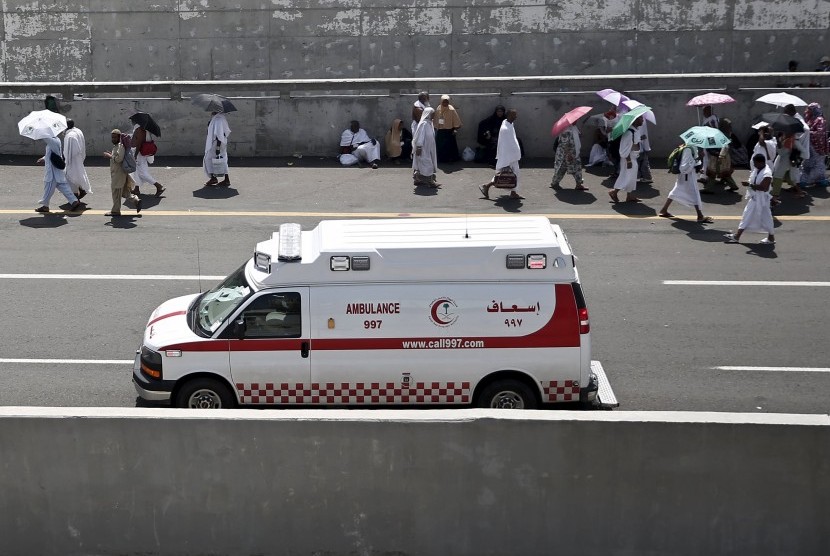REPUBLIKA.CO.ID, JAKARTA -- Commission VIII on Religious Affairs of the House of Representatives has called on the government to increase the number of ambulances at its Hajj medical center in Saudi Arabia.
"All ambulances should be able to operate, and their numbers should be increased in accordance with the number of elderly Indonesian Hajj pilgrims," Commission VIII Chairman Saleh Partaonan Daulay stated here on Monday.
Daulay, a politician of the National Mandate Party, stated that Commission VIII's Hajj Management Agency's Working Committee had conducted a working visit to Saudi Arabia, including observing the Indonesian Hajj medical center there.
He remarked that during the 2016 pilgrimage season, ambulances of the medical center should be on standby 24 hours and be ready to be operated. This is crucial since the 2016 pilgrimage season is forecast to be hotter than that in the previous year.
"Last year, there were several ambulances, which could not be operated. This year, all the ambulances should have been repaired," he noted.
According to Daulay, additional ambulances will be readied in line with the government's program, which prioritizes the safe departure of elderly pilgrims.
"Elderly pilgrims are more vulnerable to various diseases, so they need more healthcare services than others," he pointed out.
Therefore, he urged the government to increase its services for Indonesian Hajj pilgrims in Saudi Arabia, particularly for the elderly.
He pointed out that the medical center currently had no new facilities. The existing facilities were not far different from those in 2015.
"Last year's facilities were far from adequate. Therefore, we urge the government to increase the health facilities there," he noted.
Daulay noted that the Indonesian Hajj medical center should have met the international standard as set by the Saudi government.
"Our medical center is still far behind that standard. It should have adhered to the standard outlined by the Joint Commission International (JCI)," he emphasized.
The JCI is a body focusing on facilities, medical personnel, cleanliness, and design of treatment rooms. However, Daulay believes that the Indonesian Hajj medical center had yet to meet that standard.


